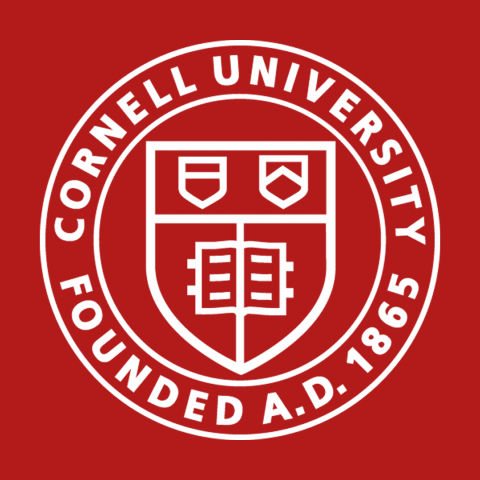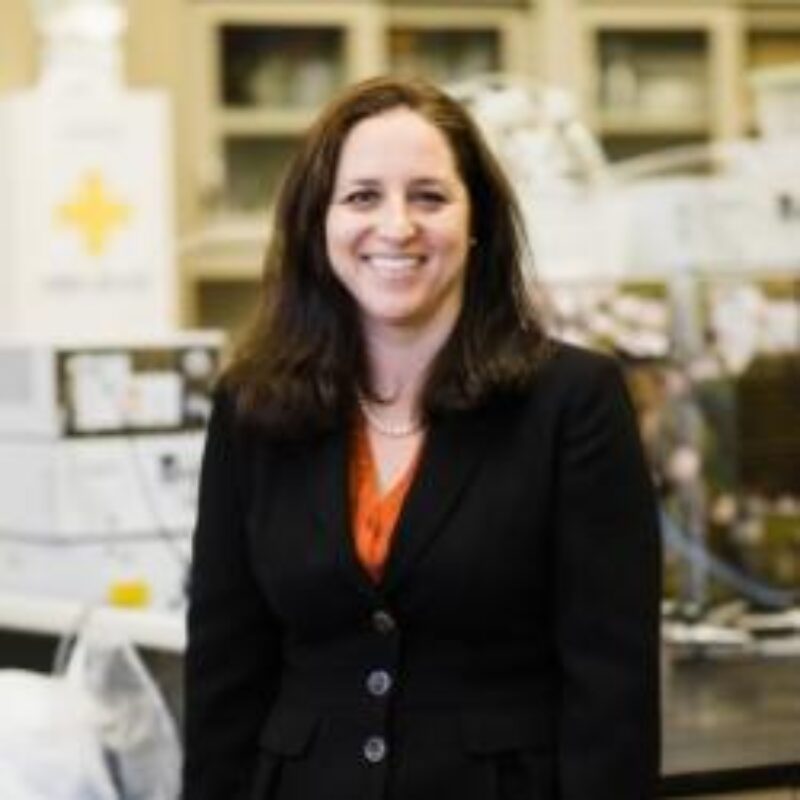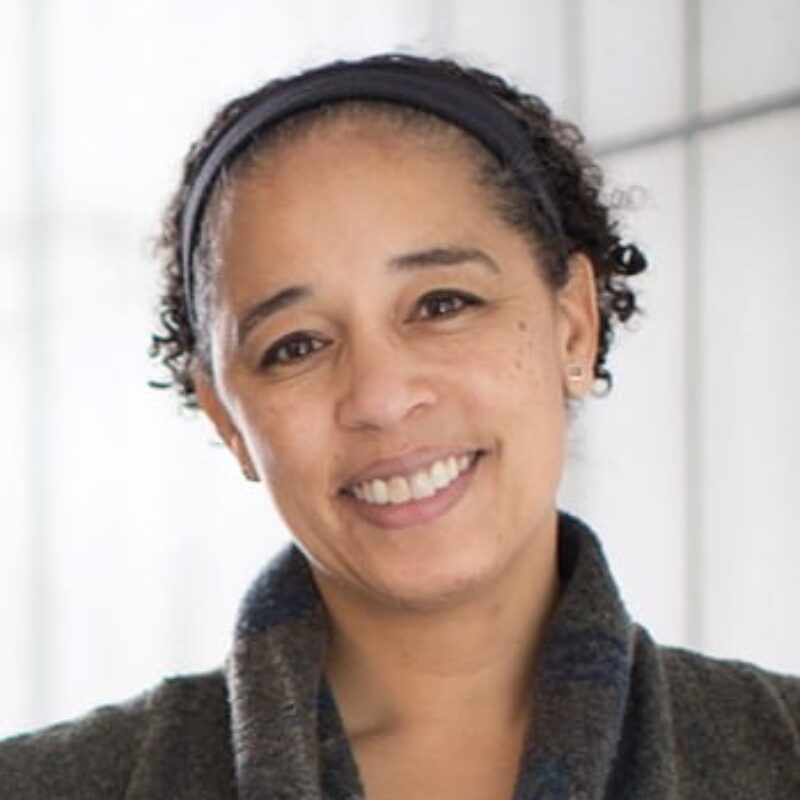Educational Policy Committee (EPC)
- Concerned with general educational policies that relate to instruction and involve more than one college, school, or separate academic unit.
- Issues include: grades and grading policies, preliminary and final examination policies, University‐wide academic requirements, the academic calendar, class schedule, and hours of instruction.
Members
Arts & Sciences
Term Ends: 6/30/28

Nicholas Brennan
Graduate student, voting privileges
Discussion Participation at Discretion of Chair
Term Ends: 6/30/26

Zora deRham
Undergraduate student, voting privileges
Discussion Participation at Discretion of Chair
Term Ends: 6/30/26
Veterinary Medicine
Term Ends: 6/30/27
Arts & Sciences
Term Ends: 6/30/28
Engineering
Term Ends: 6/30/26
Bowers CIS
Term Ends: 6/30/26
Veterinary Medicine
Term Ends: 6/30/28
Arts & Sciences
Term Ends: 6/30/26
Engineering
Chair
Term Ends: 6/30/28
Associate Dean of Faculty
Ex Officio
(not part of quorum)
Dean of Faculty
Ex Officio
(not part of quorum)
Bylaws
Charge
- Consider matters of general educational policies relating to instruction that concern more than one college, school or separate academic unit, including, but not limited to:
- Grades and Grading Policies
- Preliminary and Final Examination Policies
- University‐wide Academic Requirements
- Academic Calendar
- Class Schedule and Hours of Instruction
- Undertake any other tasks relating to university‐wide educational policy assigned to it by the Faculty Senate or the University Faculty.
Composition
The Committee on Educational Policy consists of nine members of the University Faculty, appointed by the Nominations and Elections Committee, for three‐year staggered terms. Insofar as possible, the Nominations and Elections Committee shall ensure that each of the undergraduate schools and colleges are represented. Two student members (of which at least one shall be an undergraduate) with voting privileges, will be selected annually by the Staffing Committee of the Student Assembly. Reselection of a student for a second term shall be permitted. At the discretion of the Committee Chair, student members of the Committee may, on occasion, be excluded from certain discussions and from voting on certain issues. The Dean and Secretary of the Faculty are ex officio members and are not counted in determining the number that constitutes a quorum nor in establishing the existence of a quorum. The chair shall be selected by the Nominations and Elections Committee.
(Legislation updated 3/14/12)
Where not listed as a member or chair, both the Dean of Faculty and the Associate Dean and Secretary of the Faculty, shall be a ex officio members of each committee of the University Faculty and each committee of the Senate. (Faculty Handbook, Article V Section D Part 7) (Faculty Handbook, Article VI Section A Part 3)
2024-25 Annual Report
To: Dean De Rosa
From: Rebecca Nelson, Chair
Date: June 30, 2025
Subject: EPC Annual Report
Composition of the Committee
| Person | Term | Dept. | College |
| Rebecca Nelson, Chair | 2025 | School of Integrative Plant Science and Global Development | CALS |
| J. Robert Lennon | 2025 | Literatures in English | CAS |
| Chiara Formichi | 2026 | Psychology | CAS |
| Greg Fuchs | 2026 | Applied Engineering and Physics | COE |
| Nick Salvato | 2025 | Performing & Media Arts | CAS |
| Haym Hirsch | 2026 | Computer Science and Information Science | CIS |
| Andrew Quagliata | 2025 | Hotel Management Communication | COB |
| Jillian Goldfarb | 2026 | Physics | CAS |
| Kevin Cummings | 2025 | Public & Ecosystem Health | CVM |
| David Pizarro | 2023 | Psychology | CAS |
| Patrick Kuehl | 2024 | Undergraduate student | |
| Melia Matthews | 2024 | Graduate student |
|
Committee Business
At the request of the Dean of Faculty, we considered the proposal for a revised Transfer Credit Policy. We provided the review below, eventually endorsing the proposed policy.
EPC’s review of the proposed Transfer Credit Policy
- The diagnosis is compelling, affecting prospective and actual transfer students as well as the various staff and faculty who shoulder the burden involved in the current (slow and inconsistent) system. The general evidence presented is convincing. Together with the specific examples of inconsistent credit conversions for quarter-system courses (p. 6), there is a strong case that the transfer credit system should be improved.
- The proposed remedy features the use of the Transfer Evaluation System (TES) software, supported by a team of registrars. This will presumably enable Cornell to benefit from many other universities’ assessments of syllabi, though the details of the TES are not presented in sufficient detail for us to assess the benefits it will provide.
- Jillian commented that “I think, on the whole, this policy is long overdue and will – over time – improve both the student and faculty/staff experience.”
Comments/Concerns:
- An annotated version of the proposed policy is attached with comments from Chiara and Jillian. These are not all summarized here; below are points made through email as well as some additional notes from the EPC chair (Rebecca).
- Rebecca: Can we clarify the mandate?
- The issues related to Middle States are laid out on page 7, without providing clarity on the nature and importance of Middle States. If Middle States is important, this could come earlier (near the top?) and could be a framework for what follows (our appreciation for and philosophical alignment with the requirements; the analysis of our non-compliance; our plan to come into compliance through the use of the TES).
- Rebecca: Are we exaggerating the vices of the status quo and the virtues of the proposed system?
- Chiara commented: “Having served as DIS for several years I have a lot of opinions about transfer credits… I welcome the idea of standardization, but let me start with saying that I see no difference between what is here and what is done in CAS.”
- Page 7. I (Rebecca) feel that the statement that our current approaches are “antithetical to Cornell’s mission” overstates the problems and is thus unhelpful.
- While use of the Transfer Evaluation System (software) sounds like an improvement, it is still not magical: someone has to get the syllabus, make the equivalency determination and enter the information into the system.
- A couple of EPC members expressed concern about the proposal that “Courses completed seven or more years ago will not provide transfer credit”. This seems potentially appropriate in some cases, but not in others. Thus we recommend a more nuanced approach to the issue of time limits on credit transfer.
- Jillian: “Why 7 years? Is this not punitive to someone who perhaps had to leave school because they had 3 little kids and is ready to come back? Or had major health issues? Cared for lingering dying parent?”
- J. Robert: “I agree with Jillian about the 7 years exception—why? Yes, people pause their higher education for all kinds of reasons, but also, if we think that the significance of a course is diminished after seven years, what is college even supposed to be for? Should the degree itself expire after seven years? … I can see the seven years thing being relevant for something like, say, an anatomy class for someone planning to become a nurse or doctor. Some professions require constant maintenance of specific technical information, with dire consequences for forgetting. In others, like mine, a class can unlock new skills that last a lifetime. I could get behind a policy that allows specific departments to set limits like this, but a blanket denial of courses older than seven years seems unfair.”
- Greg: “I agree that the 7-year thing should be more of a ‘have a careful read if >7 years’ but not automatically disallow the transfer. For an English class, great – our understanding of Shakespeare is not too different from seven years ago. If it’s a technology class, like in engineering or some sciences, then the relevant department should review it carefully. People that work in fields that had such degrees in the past keep up with new developments, but that’s not obviously the case in transfer credit situations. It could be that this already handled by the 80% overlaps statement, meaning if the course is too outdated then it won’t overlap by 80%.”
- Perhaps similarly, the rule about getting credit for taking a course twice may also merit a more nuanced approach:
- J. Robert: “A student who has completed a course at another institution that is determined to be equivalent to a Cornell course may elect to retake the course at Cornell, but the student may only receive academic credit for one of the two courses.” This actually shouldn’t be true for my field; a student can take, say, Advanced Narrative Writing multiple times and get credit for each, because, despite it being the “same” course, all the content differs from instructor to instructor or even from semester to semester from the same instructor, because so much of the course material (fiction writing) comes from the students themselves. [Rebecca notes that the same might apply to art and design studio courses.]
- About the section on the relatively high number of transfer students at Cornell (page 4):
- Jillian commented on page 4: “I suggest removing this. It may well be true. However, students transfer in at higher rates suggest either we (1) lose them to upper Ivies as they do well and leave us and (2) we plug these gaps with students who did not get in in the first place. Why boast about this? This is unnecessary towards the educational mission.”
- J. Robert: “I disagree with Jillian about eliminating the passage regarding Cornell’s high percentage of transfer students…this was interesting to me! I’d actually like it expanded to say why this might be, if the answer is known. It seems like relevant information, telling the reader why they should care about this problem.” [Rebecca: I agree with JRL here!]
- J. Robert: “I wonder if there ought to be an appeals process for academic advisors who believe their advisee is being unfairly denied transfer credit for a specific course. The line “Determinations of equivalency would be based on faculty expertise” suggests to me that there should be, despite the number of, yes, emails this might create. (There might actually be such a policy at the moment, I just didn’t see one mentioned here and haven’t had occasion to use it.) New courses are designed every semester, new fields of study open up. There are ample opportunities for things to slip through the cracks.”
- J. Robert: “The requirement for an institution to be accredited by the DOE has suddenly taken on new meaning…will there even be one by the time this policy is adopted? Or one whose judgement we respect?”
- Rebecca: The document could be streamlined
- A lot of points are made over and over. Some details seem excessive.
- J. Robert: Agreed with Jillian “about cutting the hilarious email whining graf, though—just say it’s a bureaucratic burden and move on. (I was paritcularly tickled by the line about the students complaining on Reddit. Nothing’s gonna stop that!)”
- The information in the second half of the document (pages 7-14) is largely redundant with what has come before, covering the the delays and inconsistencies of the status quo and the problems for students and administrators/faculty. For example, much of the information on p. 11 has been laid out on p. 2.
- A lot of points are made over and over. Some details seem excessive.
2023-24 Annual Report
To: Dean De Rosa
From: Rebecca Nelson, Chair
Date: June 12, 2024
Subject: EPC Annual Report
Composition of the Committee
| Person | Term | Dept. | College |
| Rebecca Nelson, Chair | 2025 | School of Integrative Plant Science and Global Development | CALS |
| J. Robert Lennon | 2025 | Literatures in English | CAS |
| Chiara Formichi | 2026 | Psychology | CAS |
| Greg Fuchs | 2026 | Applied Engineering and Physics | COE |
| Nick Salvato | 2025 | Performing & Media Arts | CAS |
| Haym Hirsch | 2026 | Computer Science and Information Science | CIS |
| Andrew Quagliata | 2025 | Hotel Management Communication | COB |
| Jillian Goldfarb | 2026 | Physics | CAS |
| Kevin Cummings | 2025 | Public & Ecosystem Health | CVM |
| David Pizarro | 2023 | Psychology | CAS |
| Patrick Kuehl | 2024 | Undergraduate student | |
| Melia Matthews | 2024 | Graduate student |
|
Committee Business
At the request of the Dean of Faculty, we considered the following:
- The proposal to add new Teaching Professor RTE titles.
- We supported this proposal.
- The proposal to remove INC from transcripts after work completed.
- We supported this proposal.
- Proposed edits to the Code of Academic Integrity (classroom privacy; recording of lectures and similar).
- We provided a few proposed edits to the draft word that Steve Jackson presented.
- The Proposal and Resolution in support of discontinuing posting median grades on student transcripts.
- We supported the resolution to remove course mean grades from transcripts.
We provided brief reports for each proposal, summarizing what we perceived to be the strengths and weaknesses of the proposal and a few recommendations from the committee. These were and the text is pasted in below for reference.
As EPC Chair, I attended the Faculty Senate meeting at which these issues were discussed and briefly presented the committee’s deliberations and findings.
Sent on Nov. 1, 2023
Dear Eve,
Thank you for soliciting the input of the EPC on the issue of the possible removal of INC from transcripts after the grade has been finalized.
The full committee has considered the documents and weighed in. Our overall consensus is that it would be best to remove the INC from Cornell transcripts once the grade has been entered.
Comments in favor of removal of the asterisk/INC:
- We understand that the request for removal of “INC” came from the student body, hinting that the student consensus is that it is not a good thing for them.
- We could not identify a clear purpose for the INC once the grade has been entered.
- Insofar as the INC might conceivably be meant to indicate challenges and potentially highlight student resiliency, we felt that there are other/better means by which this can be conveyed.
- If a “good” grade was eventually earned by the student, we do not see any advantage to noting the INC in that scenario.
- If a disappointing grade is recorded, on the other hand, an asterisk/INC could conceivably imply extenuating circumstances beyond the student’s control. But we consider it likely that a major challenge that influenced the student’s transcript would be discussed in recommendation letters and interviews, such that an INC is not a powerful means to communicate useful information.
Thanks for considering our perspectives.
Rebecca for the EPC
Sent on Nov. 1, 2023
Dear Eve,
Thank you for soliciting the input of the EPC on the issue of the proposed Teaching Professor RTE titles.
The full committee has considered the documents and weighed in. We submit to you the following observations and comments.
EPC comments:
- We support the proposal, with preference for the coexist option.
- We suggest that the distinction be based on work status rather than intellectual impact. The Lecturer and Senior Lecturer titles should be reserved for <50% appointments, for short-term or non-PhD hires.
Comments in favor:
- It is difficult to recruit top teaching talent if our title scheme is seen as reflecting a negative culture for the person being recruited.
- Ten of Cornell’s peer universities have implemented this track.
Summary:
- The two-tiered lecturer titles were created in 1973, after research associate and extension associate tracks. Nearly 400 Cornell faculty currently serve as Lecturers and Senior Lecturers. Lecturers focus on undergraduate teaching.
- More recently, the three-rank Research Professor, Professor of Practice, and Clinical Professor tracks were established at Cornell.
- Lecturers lack the term “professor” in their titles and have only two tiers, which projects a sense of the lecturer positions being a notch down from the professorial faculty. This is (actually or potentially?) not appreciated by the lecturers or by students, parents and donors. The perception issues lead to recruitment and retention problems.
- In a document dated 11 Sept 23, Clarkson and Van Loan suggest the creation of a Teaching Professor track with assistant, associate, and full levels. They note three general implementation options, favoring the idea that these titles supplement (coexist with) the Lecturer titles, with the latter being part-time, short-term and/or more narrowly focused.
- While the document is well structured and argued, the authors note that it is not a full-fledged proposal.
Observations:
- Different units (schools, departments, etc.) vary in the intensity and nature of reliance on RTE v. tenured faculty. This varied exposure and experience may influence our individual perspectives.
- The “professor” title is valued. Teaching faculty at Ithaca College have professorial titles. Some people that have moved from IC to CU have had to drop their valued professorial titles to take jobs at Cornell, which is seen as a loss.
Other comments:
- We are not aware of the financial implications and thus have not considered that issue seriously.
- Some concern was expressed that these titles might be misused by hiring people on the Teaching Professor track when tenure-track appointments might be justified.
Thanks for considering our perspectives,
Rebecca for the EPC
Send Dec. 1, 2023
Dear Eve et al.,
Five of us on the EPC have had a chance to review the materials on the proposal to discontinue posting median grades on student transcripts.
We feel that the weight of evidence is strongly in favor of discontinuing the practice of posting median grades on transcripts.
- Cornell’s “anomalous” position may have been a bold, brave move initially (hats off), but it’s clearly backfired (hats back on);
- We’re now anomalous in a bad way;
- There’s published evidence that the practice has led to negative impacts on students (they oppose it), professors (students avoid tough classes etc) and the university (grade inflation);
- There’s no apparent benefit to the practice;
- Students are against it.
The EPC (at least the minority that has weighed in to date) supports the resolution to discontinue. [If any member wishes to chime in with a contrasting perspective, please do.]
Thanks for soliciting our input.
With best wishes,
Rebecca for the EPC
Last Year
- Resolution 85, concerning academic work during scheduled breaks. This had been introduced by the EPC in 2011 as an informal “sense of the Senate” resolution. Eve asked the EPC to review the new draft resolution, which sought to formalize this resolution as the “Graded academic coursework during breaks” resolution.
- The committee brought forward several recommendations to clarify some points considered to be ambiguous.
- One of the suggestions was implemented per Carol Grumbach’s feedback.
- Rebecca attended the May 10 Faculty Senate meeting to present these suggestions and gain a deeper understanding of the issues. The discussion was illuminating.
- Registrar’s request. The EPC met in hybrid format (mostly in person) with Rhonda Kitch, Casey Washburn, and Jonathan Burdick. We discussed the procedure by which classes are scheduled. Rhonda et al. requested our endorsement for a plan to modify the way in which this procedure is described in the Faculty Handbook. We admired the evidence-based nature of the analysis and were pleased to endorse the revision process as proposed.
- Streamlining academic integrity processes. Eve shared the news that a simplified academic integrity system will be piloted in CIS. The new system is intended to improve faculty engagement with students accused of violations and to ease of tracking cases within and across the university. The system may become a model for other Colleges and Schools. Rebecca passed the news along to the EPC members.
Past Annual Reports

Send questions to Senate Committee Coordinator – C.A. Shugarts











